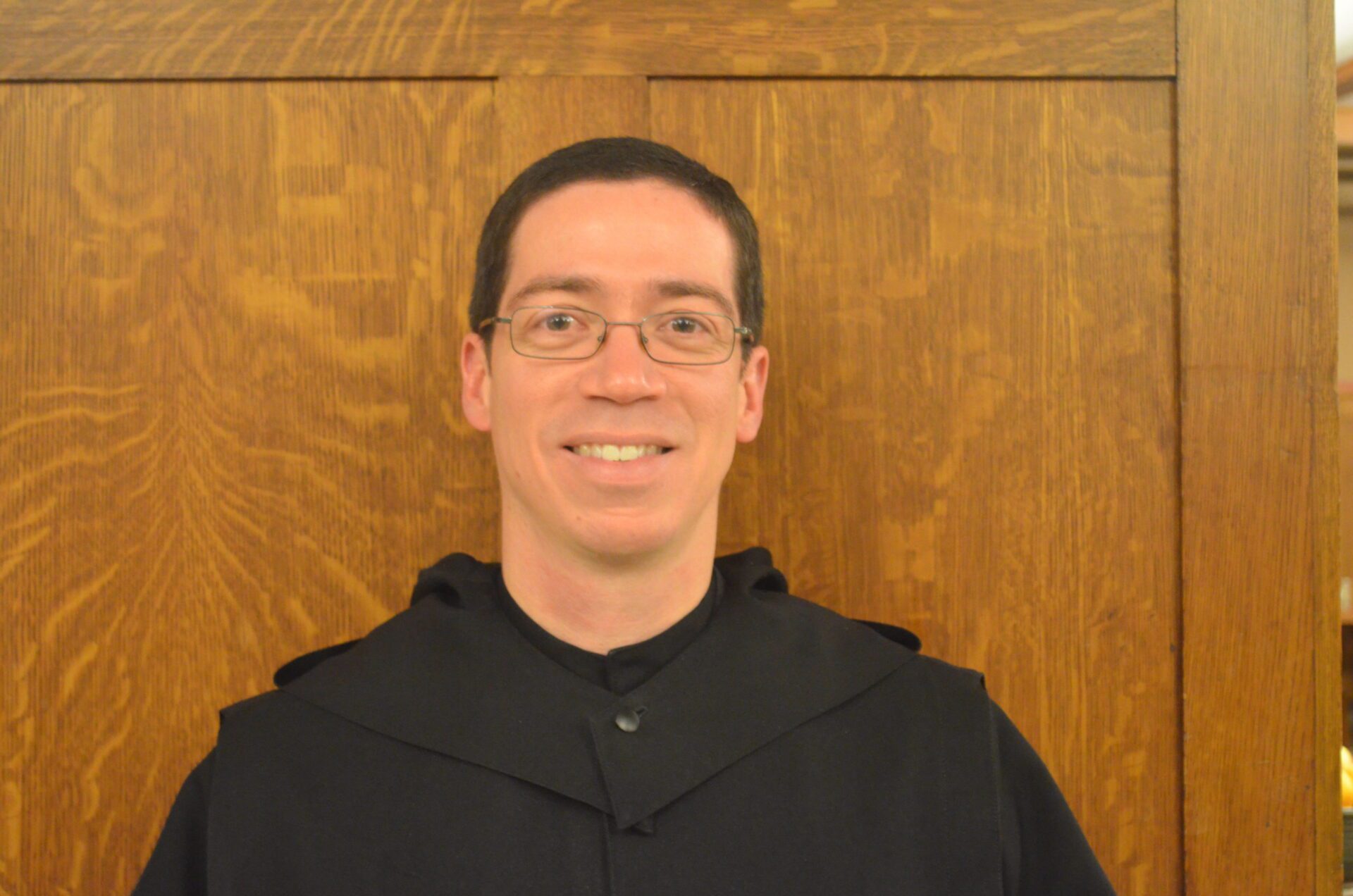Whether you have questions about discernment and vocations or want general information about Belmont Abbey, we invite you to reach out and ask!
Homilies

December 23, 2019
Fourth Sunday of Advent, December 22, 2019

The virgin shall conceive and bear a son and shall name him Emmanuel. This prophecy is mentioned twice in today’s readings, and so it seems that we are invited in today’s Mass to think about God’s providence in speaking this message.
The events of our first reading from Isaiah the prophet take place in the Kingdom of Judah around 2800 years ago, a long time ago – almost three millenia! It was during a very difficult time in Judah’s history, one which people would find practically hopeless. Two neighboring kingdoms, with a military force greater than Judah’s, have allied together and have invaded the Kingdom seeking to conquer it. Judah has just lost a major battle, in which hundreds of thousands of soldiers were killed or taken captive, and in which the king’s own son was killed. And there seems to be no help, no earthly power to come to the rescue.
Into this situation, God sends the prophet Isaiah to speak to Ahaz, the King of Judah. He first delivers a message of reassurance. In so many words, God says: though it may seem at times that human beings, acting unwisely, unjustly, or even wickedly, have sway and control over you, ultimately, I, God, am in control. Your well-being is my concern, and I have power to do all things. Do not be afraid! “Unless your faith is firm, you shall not be firm!”. These words and this message, by the way, are relevant to each of us in every time and in every place, and important for each of us to remember and repeat.
Then God says to King Ahaz, as we heard in today’s reading, ask me for a sign of your own choosing. It can be whatever you want, big or small. Ask me for a sign that I may do for you as an assurance that my words are trustworthy and true.
And Ahaz refuses. Why did King Ahaz refuse? Ahaz says that he does not want to tempt the Lord, but the reasons people give for their actions are not always the real reasons. Not tempting the Lord certainly seems like a good thing. Jesus himself even says, “you shall not put the Lord your God to the test”. So in the proper context and place, the idea of not tempting the Lord would seem praiseworthy and unobjectionable. But in this situation and circumstance, Ahaz’ refusal is not well received. “Must you also weary my God?” We should know that King Ahaz’ past is marked by infidelity to God. He has sacrificed and appealed to idols and false gods for help in his predicament; he has not trusted and been faithful to God. I think the Scriptures would have us understand that Ahaz’ response, “I will not tempt the Lord”, was not spoken in reverence for God, but rather in personal shame. It is the same attitude that led Adam and Eve to hide in the bushes after they had sinned in the Garden of Eden. Whenever a person wrongs God, shame makes him unable to stand before God, and the refusal of God’s request is an implicit claim that God does not love him; Ahaz denies God’s relationship.
But God loves anyways, and God provides a sign of His own. He says, a virgin shall be with child and bear a son. And before the child reaches the age when he knows the difference between good and evil, the Kingdom’s problems will be resolved. Think about that. In the time of King Ahaz, he was surrounded and outnumbered by his enemies, with no one present to help and no one in the foreseeable future who could bring deliverance, and yet within three years, the lands of the two hostile kingdoms would be deserted. In God’s will and power, change can come very quickly and in a manner that is literally astonishing. Over and over again, we are exhorted to trust God, and to continue to pray and serve God faithfully regardless of what is happening around us, trusting that at the proper time and in the proper way, God will act.
St. Peter in his first epistle notes that what the prophets spoke sometimes was meant for a people beyond their own time, and especially those things spoken concerning salvation. And appropriately then, the prophecy spoken to King Ahaz, shows up again more than seven hundred years later, in today’s gospel, spoken now as applying to the coming of the Messiah. Matthew’s gospel says that the prophecy is fulfilled in Jesus Christ.
It is interesting then to contrast and compare the way this prophecy was fulfilled in the two times. In the first time, a virgin conceived a child in the normal way of conception, that is in relations with a man, and bore a son. His name, Emmanuel, means “God is with us”, and was meant as a reminder to God’s providential care. But the child was otherwise unremarkable. Following this sign, God delivered the Kingdom of Judah from its oppressors. But the deliverance of the Kingdom of Judah was in the way of earthly deliverance, temporary and lasting only for a time. Within another 150 years, the Kingdom of Judah would meet its end, with another generation in charge and with a different enemy, Babylon, serving as the conqueror.
Meanwhile, in the second time of the prophecy’s fulfillment, a virgin conceived a child without knowing man, through the overshadowing of the Holy Spirit, a unique event, unheard of before. As compared to being just a reminder that God is with us, this child will literally be “God is with us”; He is both human and divine. The one who is to be born will also be connected with the deliverance of his people, but in this case, He Himself will be the savior. As the angel said today, He will save his people from their sins. This is not a temporary salvation, but an everlasting salvation. It is sin that brings death and the end of good things. It is sin that ruptures people’s relationship with God, that makes them unable to stand before God, and would have them deny God’s love and relationship. To save people from their sins then is to bring them into unending goodness, and the fullness of life.
Clearly, it is the second fulfillment of the prophecy that is the most significant one. It is in the coming birth of the second child, that we and all the nations of the Earth will find blessing. It is in the coming birth of the second child, that the definitive relationship of love between human beings and God will be manifested. It is in the coming birth of Jesus, that things need not be the same for us, any more.
Today, on this Fourth Sunday of Advent, we enter into the last few days of our preparation to receive Christ at his coming. We are exhorted to put aside any infidelities to God that we may have, that prevent us from standing before the Lord. We are exhorted to restore our good relationships with God and with each other. In the example of St. Joseph, we are called to the obedience of faith, willingly and trustingly to do what the Lord has commanded of us. And all so that we may receive Emmanuel with joy.
In this Eucharist, we pray for the grace to do all we can to prepare ourselves for a holy celebration of Christmas. Amen.
Fr. Elias Correa-Torres, O.S.B.